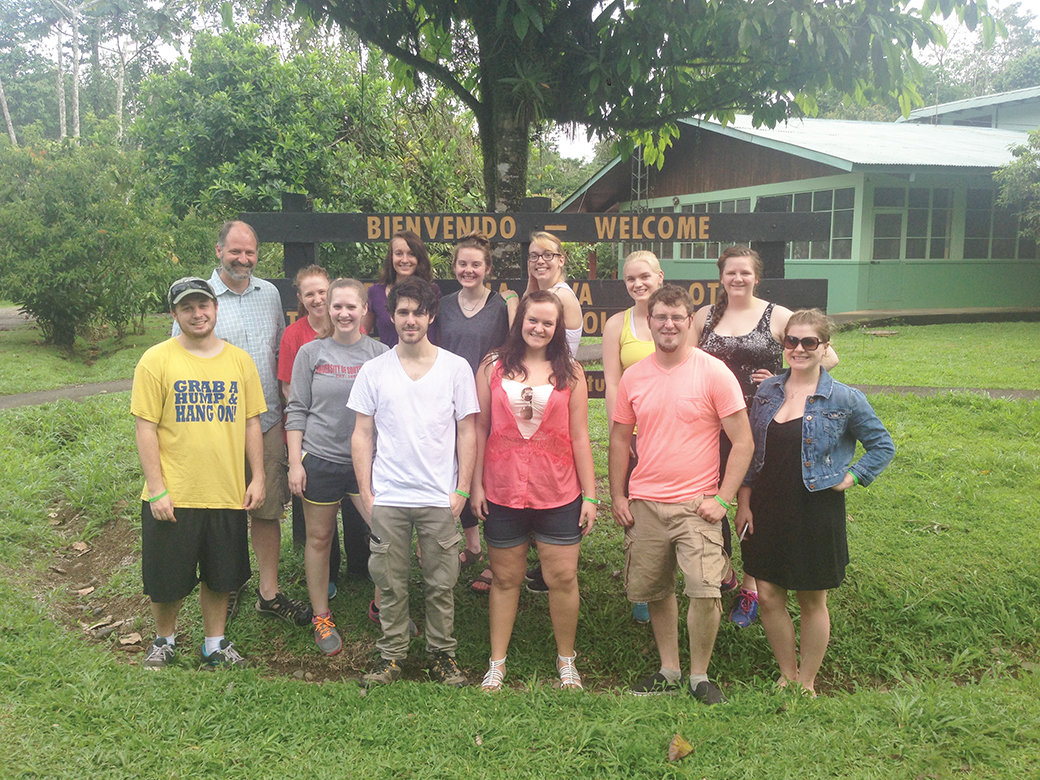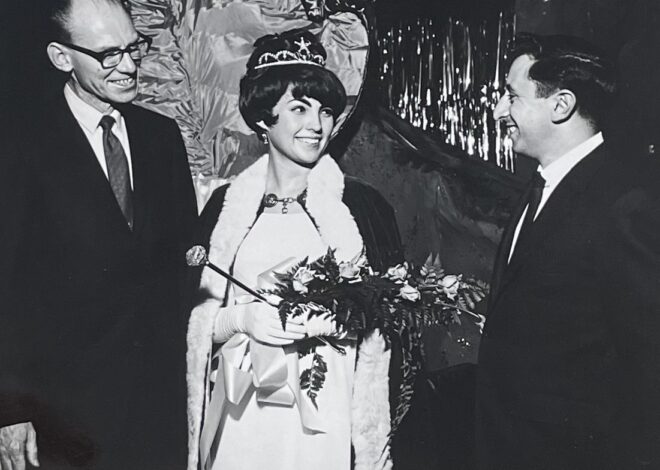
Biology class to embark on ecology research trip to Costa Rica
Seven USD students are heading to “one of the most bio-diverse places in the world” for two weeks of learning, researching and jungle trekking.
A biology class led by professor Jacob Kerby will be traveling to Costa Rica for two weeks starting May 8 to study ecology and learn how to do research in the field.
The idea behind the Biology 417, Field Ecology, Kerby said, is to create a research project. Students will break into groups, come up with a scientific hypothesis based on information they gather and present their observations at the end of their two-week trip. They’ll also have the opportunity to present their findings at Ideafest next year.
Some previous projects students have done include investigating the movement pattern of leaf cutter ants, spatial positioning of nest for strawberry poison dart frogs and a long-term study on amphibian declines at the station, which Kerby said he plans on giving another group this assignment this year.
It costs about $2,000 for the group of seven students to go.
Kerby said the trip helps students engage in biology away from a typical classroom setting and allows them to immerse themselves into nature and what the field is like.
“Just like in any field, the more you can experience it, the better it will be,” Kerby said. “I think this class is really one of our best courses just because it pulls the students into the experiences more than any other course.”
The class will be studying mostly at a biological field station in La Selva, which is Spanish for “the jungle.” There, students will be provided with food, laboratories and classrooms for their trip.
Kerby said there’ll be other researchers present to teach the class about subjects he isn’t as familiar with, as to give students a better learning experience.
“It’s a really phenomenal class,” Kerby said. “I can teach the basics and lecture, but it’s so much more worthwhile and fruitful to them to be able to go meet people, professors and graduate students that are doing the research in a real place, answering real, important questions.”
First-year Jasmine Kearney, a biology major taking the course, said she’s excited to go to Costa Rica to study the country.
“I thought it was a really cool opportunity,” Kearney said. “It seemed like such a cool way to get out of the country and to go somewhere I didn’t know a lot about.”
In Costa Rica, students will go on tours and hikes, where they’ll familiarize themselves with the area and different species of animals. Their research station is located near a rainforest.
“We’re in one of the most bio-diverse places in the world,” Kerby said. “So you don’t even have to have a bunch of an agenda — it’s great fun.”
Students will also be spending time in Jaco, a city near the beaches, so they can experience the coasts and the city.
“That allows some cultural engagement,” Kerby said.
Besides working on their projects, students will have time to surf, eat, shop and explore the country, while also experiencing a diverse ecosystem.
“It’s a fun thing to do,” Kerby said. “I really do it for the students. Generally, all of them have unique experiences. It’s an impressive feat.”
Despite the common perception that Costa Rica is a vacation destination, Kearney said she’s excited to learn.
“It’s really cool that we’ll be in the jungle and see different kinds of animals,” Kearney said. “I think just learning about Costa Rica, instead of just going for a vacation is what led me to go.”
Kerby said though the course is only two weeks long, he makes it pretty “rigorous.”
“My goal with the course itself is that they walk away really having a better understanding of how to do research from beginning to end,” Kerby said. “This really forces them to create their own research project and follow it through.”


